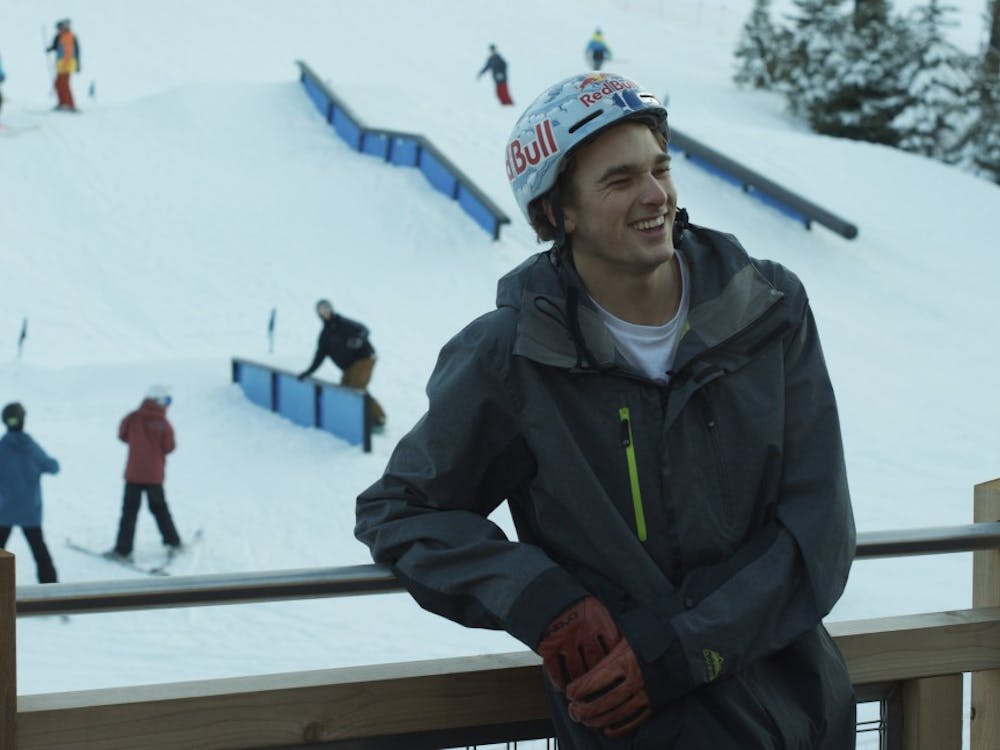Dakota Crawford is a junior journalism and telecommunications major and writes ‘Full-Court Press’ for the Daily News. His views do not necessarily reflect those of the newspaper. Write to Dakota at dmcrawford@bsu.edu.
A group of Ball State students covering the Olympics gathered outside a restaurant in the dimly lit, mud-covered streets of Moscow.
We began an a cappella reenactment of the Spice Girls, complete with beat boxing, during our last night in Russia. It was the first time in over a week without any deadlines to meet and the option to sleep in until 7 a.m.
Time to celebrate.
“Quit being so American,” our adviser instructed. The song selection was dialed back to Smash Mouth’s “All-Star.”
We had just enjoyed a five-course meal complete with the patron’s choice of red or white wine. We were ready to explore the city.
Our own live music helped pass the time, and we reached the hotel before we knew it. We stopped in, just for a moment, before heading back outside looking for somewhere to pass the time.
Following the lead of our translator, we found a café with dark, stained glass windows. But what were we to do in a city that stops selling alcohol after 11 p.m.?
A pair of Russian bartenders met our group’s translator, who had already worked his magic countless times during this trip, and soon emerged from their café with a bottle of champagne. It was nothing to get excited about, but not too shabby. I mean, better than nothing, right?
After conversing with the pair for a few minutes, they snuck back into the building. We figured we had seen the last of them until they reemerged, this time with a bottle of cognac. They said to enjoy the rest of our trip.
With that, a group of American students were hugging a pair of strangers from halfway around the world.
People are just people, despite the language barrier and culture differences.
A few times, those challenges were enough to make our group of student journalists want to cry.
I realized the impact of being on the wrong side of the language barrier when a Russian security officer walked in my direction earlier that week, slowly raising his voice a little more with each step.
I was standing in the right area of security, minding my own business. Unfortunately, I was in the line designated for women.
Surely, the security guard just wanted to let me know that. Due to his stature and booming Russian voice, I assumed he was about to have me arrested and then deported back to the United States.
Once communication was established, though, Russians were kind and helpful. They were curious to learn more about us and why we were traveling so far for a college class.
Inside the Olympic bubble, hundreds of volunteers and journalists came together with an open mind. The atmosphere was welcoming and secure.
Volunteers were quick to help with any problem. If they couldn’t speak English, they’d find someone that could. I once had a full conversation through Google Translate on a Russian volunteer’s iPhone.
Two Americans, who walked through the Olympic Park wearing patriotic gear were the subject of many photos. The Russians quickly made them celebrities, swarming every few minutes.
Among the impromptu fans was Sochi native Irina, who said she was excited to have the opportunity to see Americans and to show them how similar she is.
Before leaving, I wasn’t planning on meeting people like Irina — talks of terrorism and Black Widow suicide bombers clouded my mind.
I wasn’t looking forward to the people or the way the games would bring them together. By the end of the trip, I just wanted to sing Spice Girls with the Russian bartenders.



